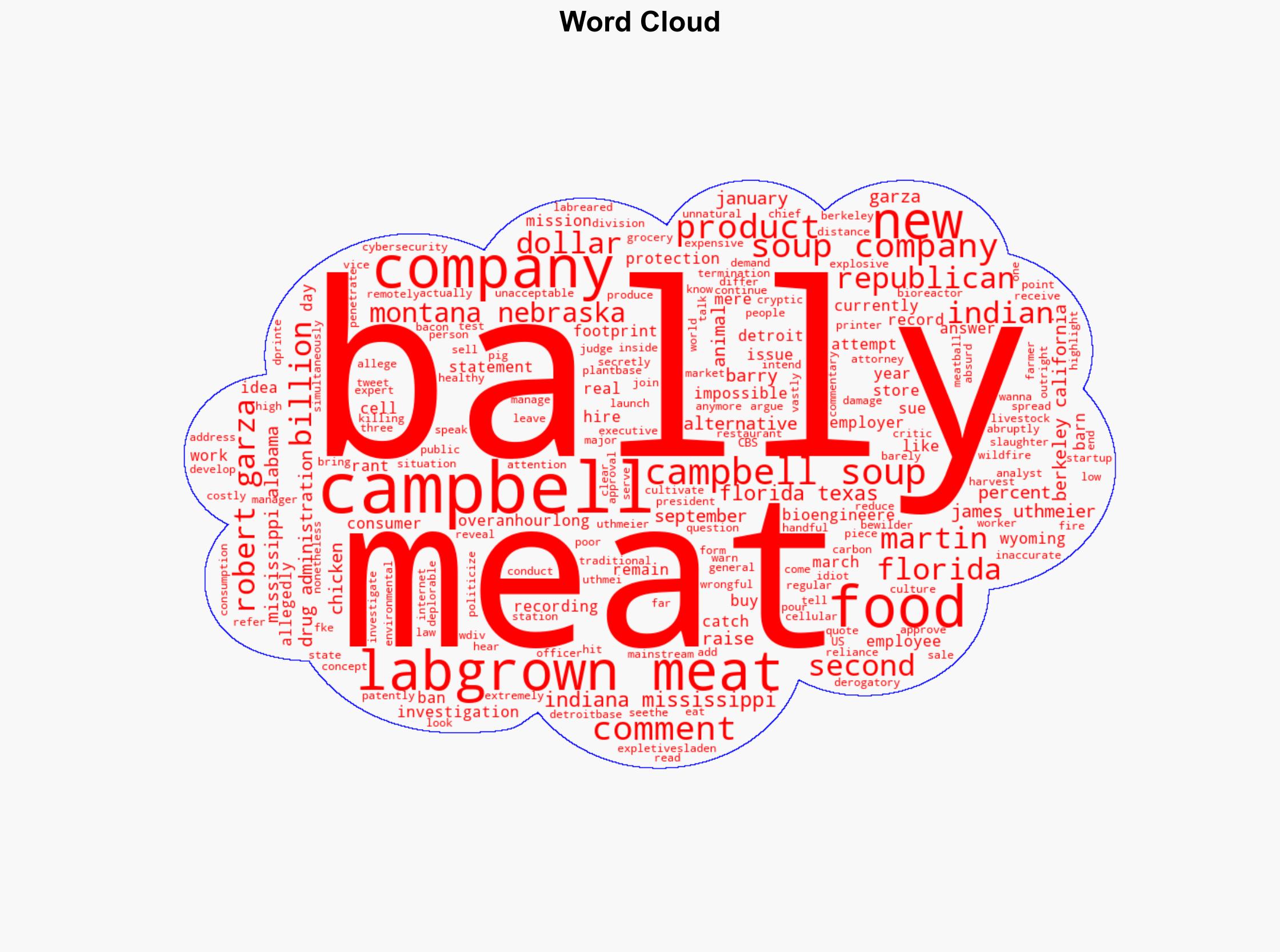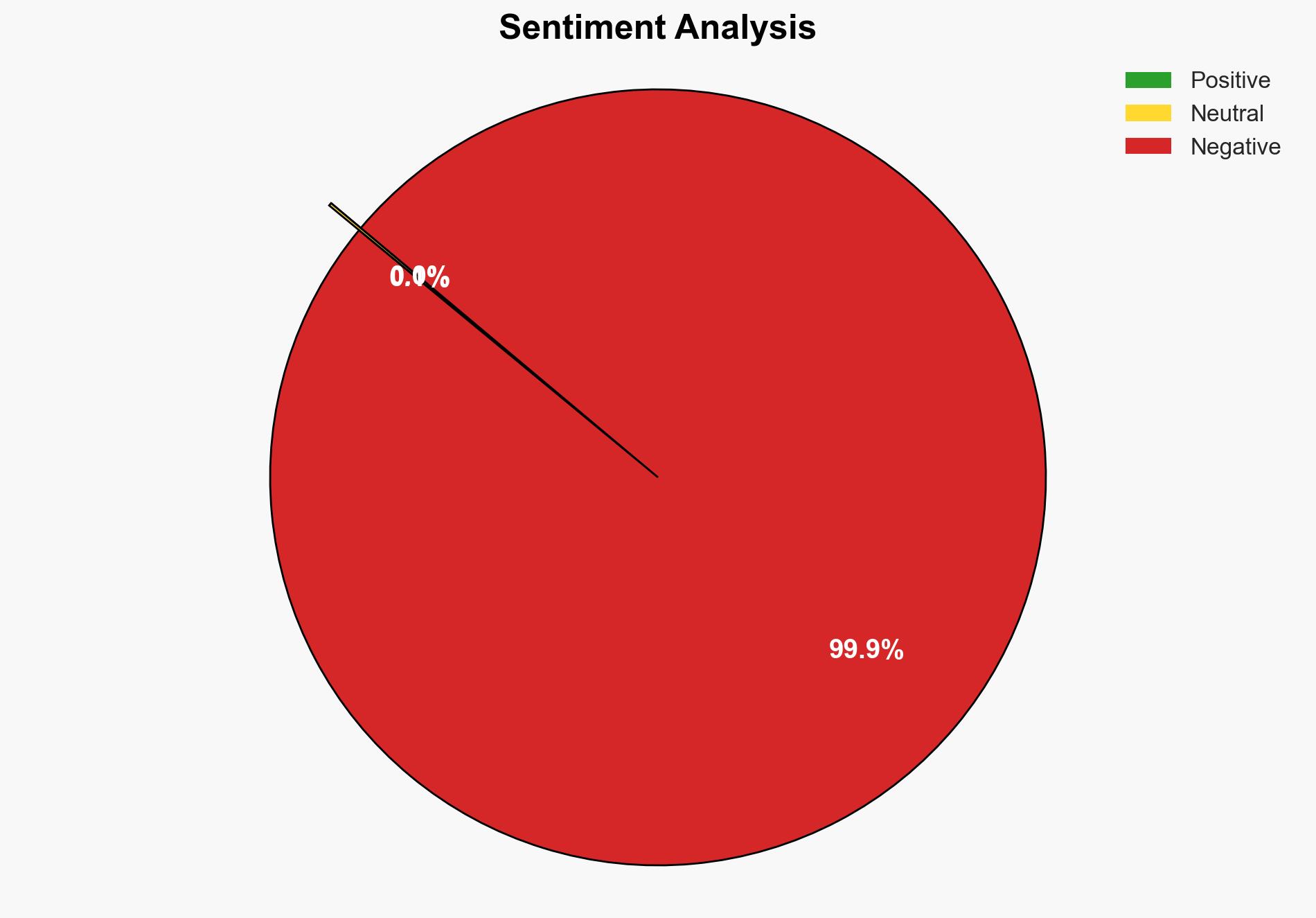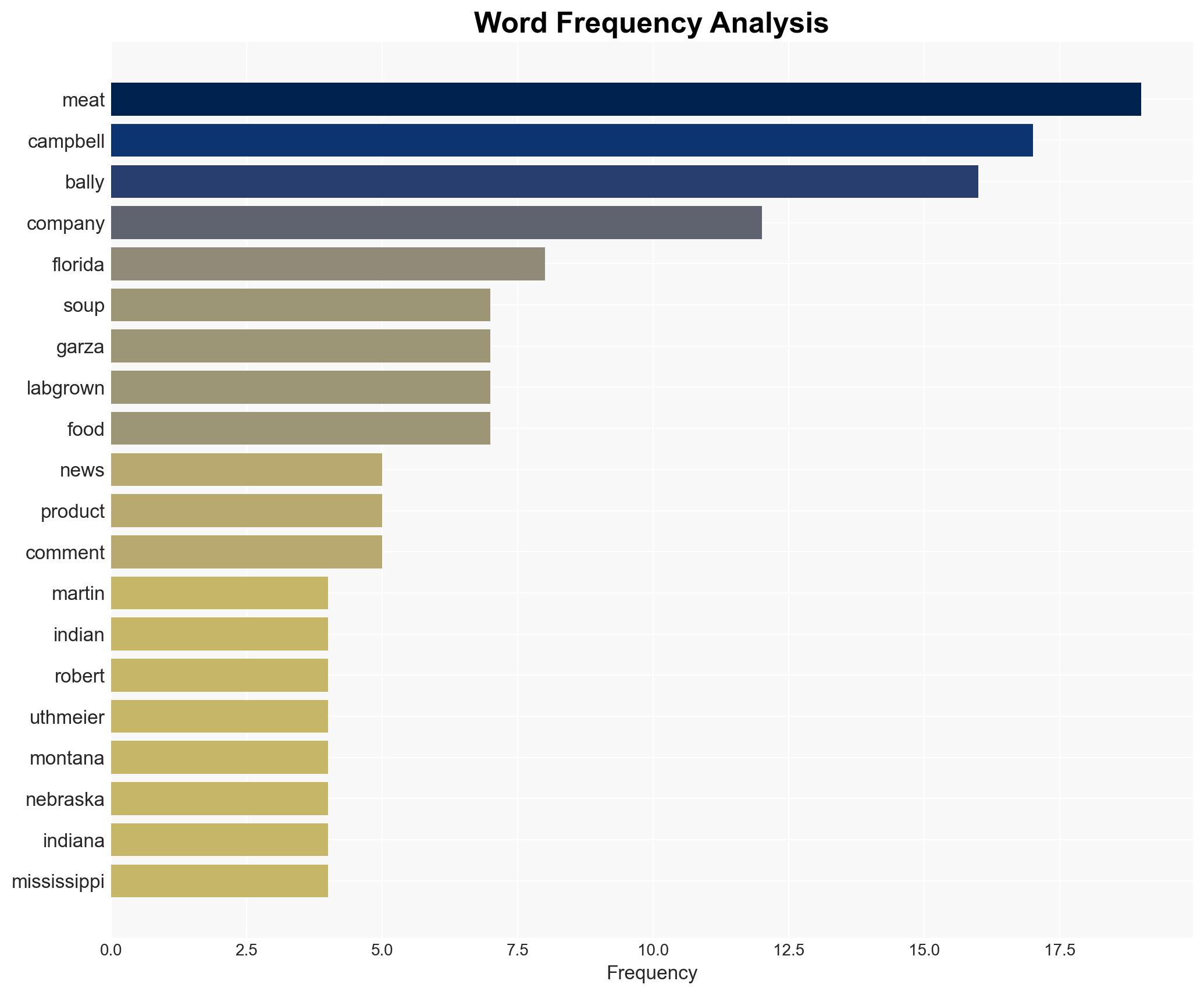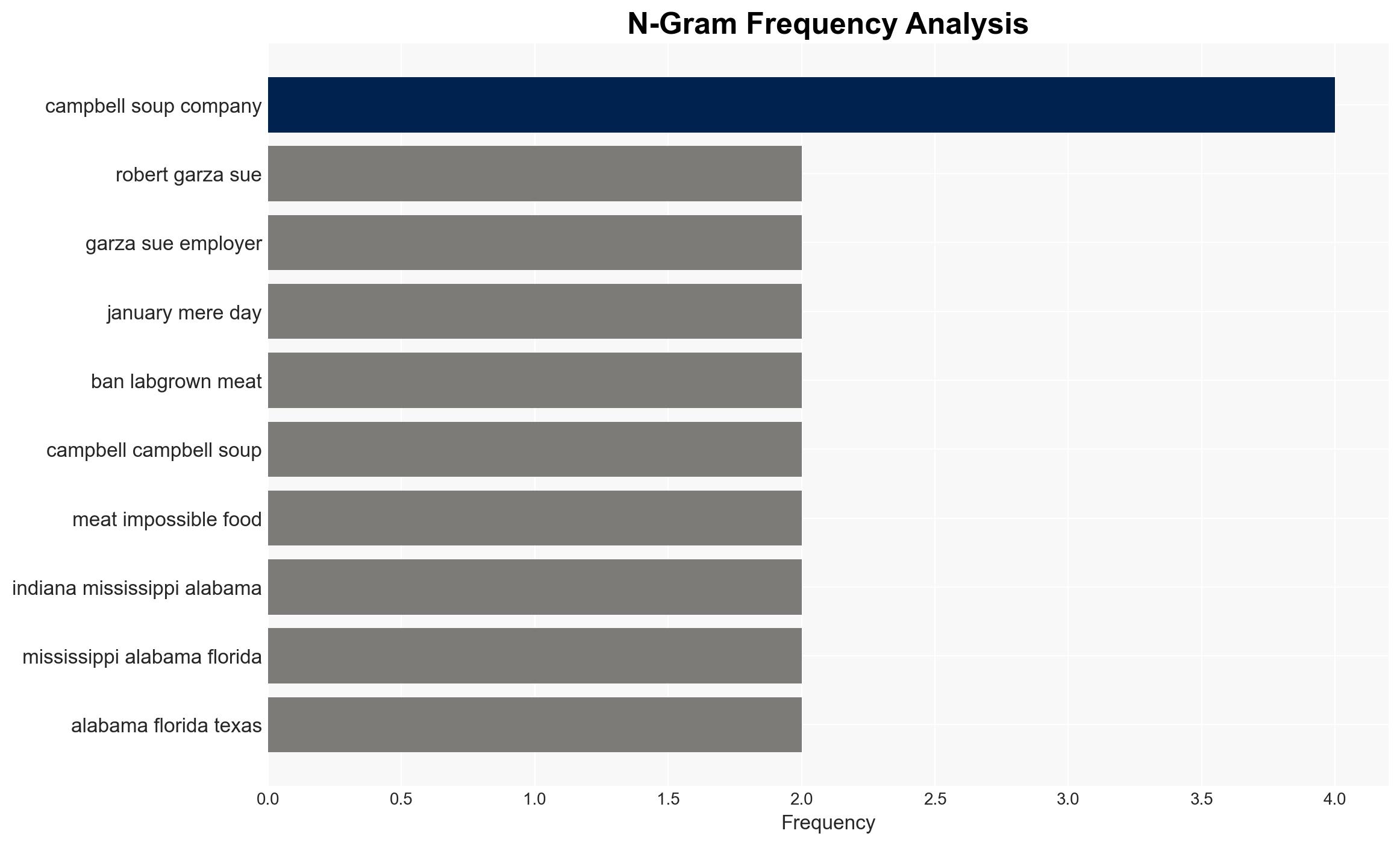In Leaked Audio Campbells Soup Exec Rants About Bioengineered Meat That Came From a 3D Printer
Published on: 2025-11-25
AI-powered OSINT brief from verified open sources. Automated NLP signal extraction with human verification. See our Methodology and Why WorldWideWatchers.
Intelligence Report:
1. BLUF (Bottom Line Up Front)
The most supported hypothesis is that the leaked audio incident is a result of internal discord and mismanagement within Campbell Soup Company rather than a deliberate corporate strategy against bioengineered meat. Confidence Level: Moderate. Recommended action includes conducting a thorough internal review to address management issues and improve communication strategies, while also preparing for potential regulatory scrutiny regarding bioengineered meat products.
2. Competing Hypotheses
Hypothesis 1: The leaked audio reflects genuine internal concerns and resistance within Campbell Soup Company regarding the adoption of bioengineered meat products. This suggests a lack of alignment between corporate strategy and executive beliefs.
Hypothesis 2: The incident is primarily a result of personal grievances and miscommunication, with no significant impact on the company’s strategic direction towards bioengineered meat. The executive’s comments are isolated and do not represent the company’s official stance.
Hypothesis 2 is more likely due to the company’s public distancing from the executive’s comments and the ongoing investigation, indicating a reaction to an unexpected internal issue rather than a coordinated stance.
3. Key Assumptions and Red Flags
Assumptions: The executive’s comments do not reflect the official corporate policy. The company’s public statements are sincere and not deceptive.
Red Flags: The abrupt termination of Robert Garza could indicate potential attempts to suppress internal dissent or whistleblowing. The timing of the leak and subsequent investigation may suggest internal power struggles.
Deception Indicators: The company’s denial of using bioengineered meat, despite industry trends, could be misleading if future disclosures reveal otherwise.
4. Implications and Strategic Risks
The incident could lead to increased regulatory scrutiny and public skepticism regarding Campbell Soup Company’s product integrity, particularly if bioengineered meat becomes a contentious issue. Politically, this aligns with broader debates on food safety and innovation, potentially impacting legislative actions. Economically, mismanagement and public relations issues could affect investor confidence and market position.
5. Recommendations and Outlook
- Conduct an internal review to address management and communication issues, ensuring alignment with corporate strategy.
- Enhance transparency regarding product development and ingredient sourcing to build consumer trust.
- Engage with stakeholders, including regulators and consumer groups, to navigate the evolving landscape of bioengineered foods.
- Best-case scenario: The company successfully mitigates the fallout, aligning internal and external communications, and capitalizes on bioengineered meat innovations.
- Worst-case scenario: Continued internal discord and public mistrust lead to regulatory penalties and market share loss.
- Most-likely scenario: Short-term reputational damage is managed through strategic communication and policy adjustments, stabilizing the company’s position.
6. Key Individuals and Entities
Martin Bally (Campbell Soup Company Executive), Robert Garza (Former Cybersecurity Analyst), James Uthmeier (Florida Attorney General).
7. Thematic Tags
Cybersecurity, Corporate Governance, Bioengineered Foods, Regulatory Compliance, Public Relations
Structured Analytic Techniques Applied
- Adversarial Threat Simulation: Model and simulate actions of cyber adversaries to anticipate vulnerabilities and improve resilience.
- Indicators Development: Detect and monitor behavioral or technical anomalies across systems for early threat detection.
- Bayesian Scenario Modeling: Quantify uncertainty and predict cyberattack pathways using probabilistic inference.
Explore more:
Cybersecurity Briefs ·
Daily Summary ·
Support us





